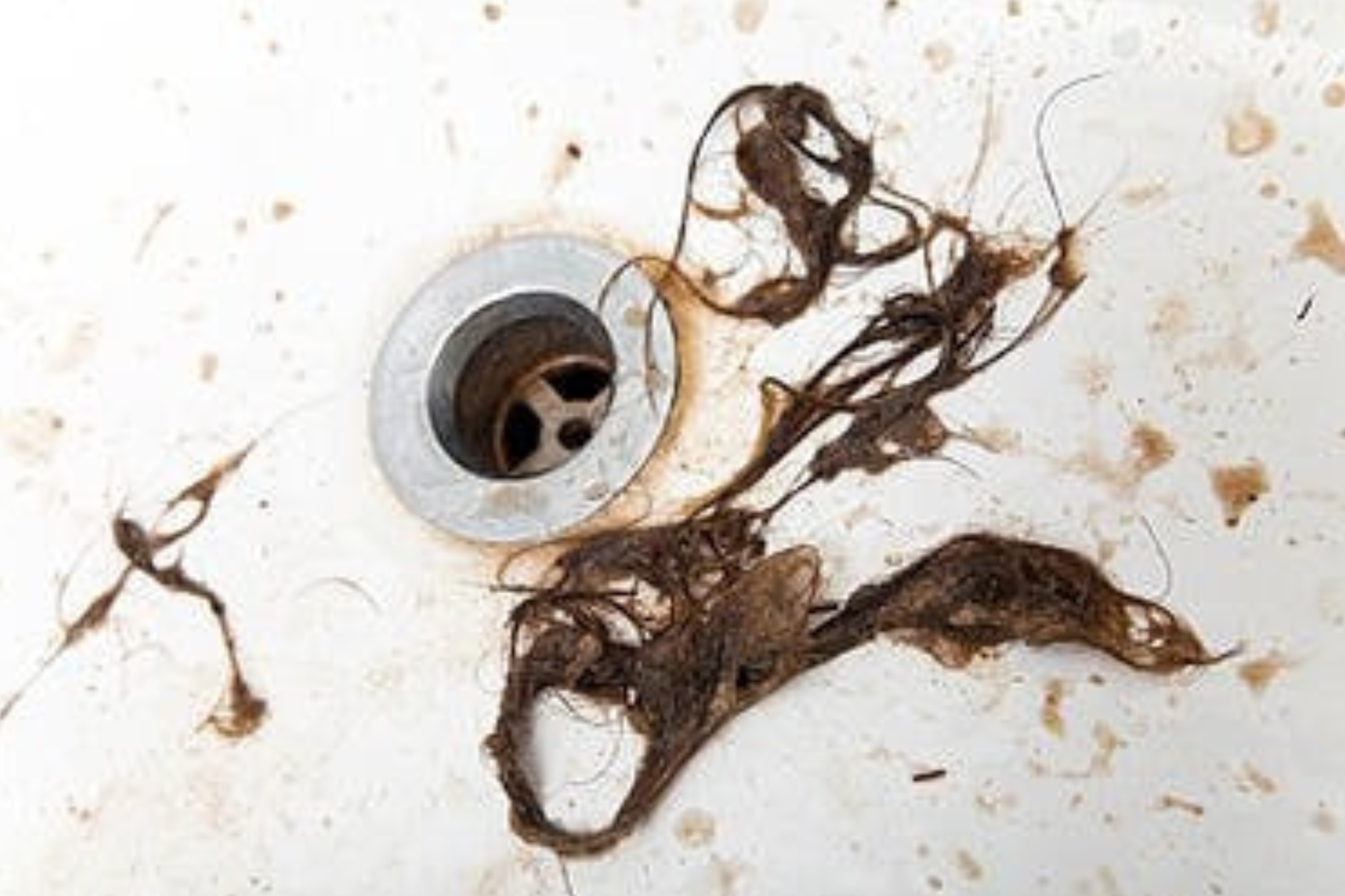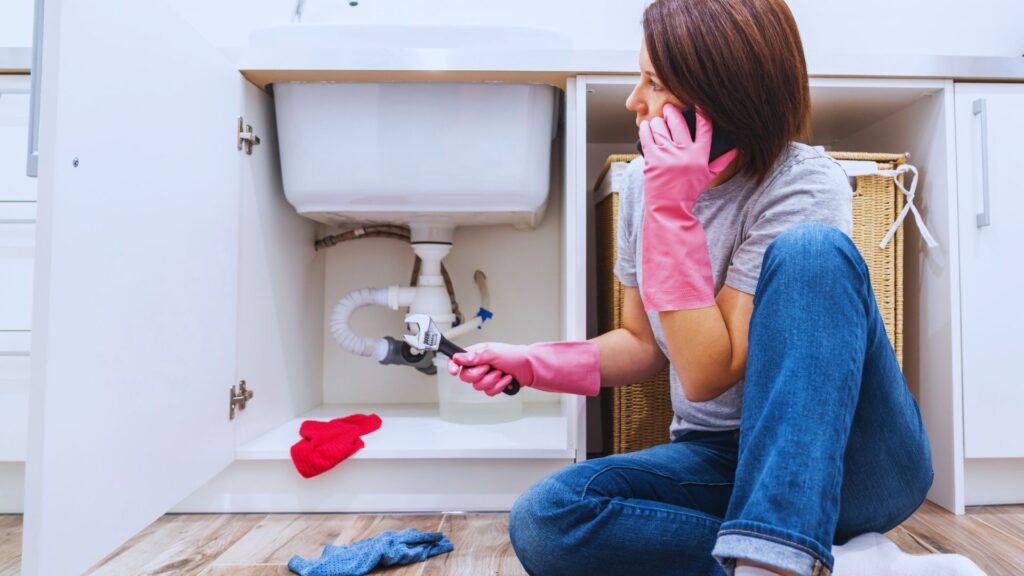You’re noticing slow drains, and it might not just be a simple clog—mineral build-up from hard water deposits calcium and magnesium in pipes, forming limescale that restricts flow. Soap scum, mixing with these minerals, creates sticky blockages. Foreign objects like jewelry can easily snag in the system, exacerbating the issue. Additionally, tree roots can infiltrate pipes through small cracks, and pipe misalignments from ground shifting disrupt water movement. You can use water softeners, screens, and regular inspections to mitigate these problems. Explore further to discover how each of these issues can be addressed in more detail.
Key Takeaways
- Mineral build-up from hard water causes limescale formation, restricting water flow in pipes.
- Soap scum accumulation narrows pipe diameter, leading to slower drainage over time.
- Foreign objects like jewelry and hair ties can block drains and disrupt water flow.
- Tree root intrusions in underground pipes create blockages and potential damage.
- Pipe misalignments result in uneven flow, increasing sediment buildup, and slow drainage.
Mineral Build-Up
Although often overlooked, mineral build-up is a common culprit behind clogged pipes, particularly in areas with hard water. Hard water contains high levels of calcium and magnesium, which gradually accumulate inside your pipes.
This mineral buildup can severely restrict water flow, leading to frustratingly slow drains. As water flows through the pipes, it deposits these minerals on the pipe walls, forming limescale. Over time, this limescale thickens, narrowing the pipe and creating blockages. It’s one of the primary reasons for clogged pipes that many people don’t consider until it’s too late.
To tackle this issue, you should consider installing a water softener. This device reduces the mineral content in your water supply, preventing the formation of limescale.
Regularly flushing your drains with hot water can help dissolve minor deposits before they become significant problems. Additionally, routine inspections of your plumbing system can identify early signs of mineral buildup, allowing you to address them before they lead to major clogs. Professional drain cleaning services Aurora CO can further prevent blockages and keep your plumbing system running smoothly. By staying proactive with maintenance, you can avoid costly repairs and ensure your kitchen plumbing remains in top condition.
Soap Scum Accumulation
Soap scum is a frequent yet often underestimated cause of clogged pipes. When soap combines with minerals in hard water, it forms a sticky residue that clings to the inner walls of your pipes. Over time, this buildup narrows the pipe diameter, resulting in slow drains and eventual blockages.
You mightn’t notice it immediately, but as more soap residue accumulates, water flow decreases, leading to persistent drainage problems.
Fortunately, you can tackle soap scum accumulation effectively. Start by using a drain guard to catch soap particles before they enter the pipes.
Regularly clean your drains with a solution of baking soda and vinegar to break down existing soap residue. Simply pour half a cup of baking soda followed by half a cup of vinegar into the drain, let it sit for 15 minutes, then flush with hot water. This natural remedy helps dissolve soap scum and maintains clear pipes.
Additionally, switch to liquid soap or body wash, which tends to produce less residue than bar soap.
Foreign Objects
When small objects like jewelry, hair ties, or cotton swabs accidentally find their way into drains, they can cause significant blockages. These foreign objects disrupt water flow, leading to slow drains and potential pipe damage. Each time you drop a small item down the drain, it can become lodged in the pipe, creating an obstruction that prevents efficient drainage. This issue is common in bathroom and kitchen sinks, where small items are frequently used.
Prevent blockages by properly covering drains with mesh screens. This simple solution effectively captures small objects before they enter the plumbing system.
If you suspect that foreign objects are causing slow drainage, consider seeking professional assistance from an Arvada drain cleaning service. They have the tools and expertise to remove these blockages without damaging your pipes.
In addition, regularly inspect your drains for any visible obstructions. If an item does fall into the drain, act quickly to retrieve it using needle-nose pliers or a plumber’s snake.
Taking swift action and implementing preventive measures will help maintain clear drains and prevent costly repairs.
Tree Root Intrusions
Even if you’re meticulous about what goes down your drains, tree roots can still wreak havoc on your plumbing system. These roots naturally seek out moisture and nutrients, which makes your pipes an attractive target. As they grow, they can infiltrate tiny cracks or joints in underground pipes.
Once inside, they expand and create blockages that lead to slow drains. The pressure from growing roots can also cause significant pipe damage, including fractures or collapses.
Early detection is key to addressing tree root intrusions. Regular inspections using a plumbing camera can help spot root invasions before they become severe. If you suspect tree roots, you might use a root-killing product designed to dissolve roots without harming your pipes.
However, these solutions are temporary and mightn’t prevent future root growth. For a more permanent fix, consider installing a root barrier between trees and your plumbing.
In cases where roots have caused extensive damage, pipe repair or replacement might be necessary. Consulting a professional plumber can provide insight into the best course of action, ensuring your pipes remain clear and your water flows smoothly.
Pipe Misalignments
Addressing external threats like tree roots is important, but internal issues such as pipe misalignments can also lead to significant plumbing challenges.
When pipes aren’t aligned properly, it creates uneven flow patterns, increasing the risk of water pooling and sediment accumulation. This misalignment can result from improper installation, ground shifting, or even pipe settling over time. As water flow slows down, debris, soap scum, and other particles can easily accumulate, leading to blockages and slow drains.
To determine if pipe misalignment is the cause of your issue, listen for gurgling noises or notice inconsistent water flow. A professional plumber can use video inspection tools to detect these misalignments accurately. Fixing the problem often involves realigning or replacing the affected pipe sections to guarantee proper slope and flow.
Guaranteeing pipes are installed correctly with the right slope can prevent future misalignments. Regular inspections can catch early signs of shifting.
If you’re experiencing slow drainage and suspect misalignment, don’t hesitate to seek professional assistance. Addressing pipe misalignments promptly restores efficient drainage and prevents further complications, saving you time and costly repairs in the long run.
Biofilm Formation
Although often overlooked, biofilm formation inside pipes can significantly contribute to clogged pipes and slow drains. Biofilms are slimy layers of microorganisms that adhere to pipe surfaces, thriving in the moist, nutrient-rich environment. As these biofilms develop, they create a sticky matrix that traps debris, leading to substantial flow restrictions over time.
You mightn’t realize it, but biofilms are more than just a nuisance. They can harbor bacteria and pathogens, posing potential health risks. Additionally, the biofilm’s structure makes it resistant to simple cleaning methods, meaning traditional drain cleaners often won’t suffice. Instead, addressing biofilm requires a strategic approach.
To combat biofilm formation, regularly flush your drains with hot water to disrupt its growth. Incorporating natural cleaning agents like baking soda and vinegar can help break down biofilm layers.
Regular maintenance is key; by keeping your drains clean and free-flowing, you prevent biofilms from establishing a foothold. If problems persist despite these efforts, reaching out to a professional plumber guarantees thorough drain cleaning and minimizes potential health hazards associated with untreated biofilms.
In Summary
To keep your drains flowing smoothly, tackle the problem head-on. Regularly clean drains to prevent mineral buildup and soap scum. Install drain guards to catch foreign objects, and be mindful of what goes down the sink. Inspect your plumbing system for misalignments and watch for signs of tree root intrusions—combat biofilm by flushing drains with hot water and vinegar.
At Pipe It Up, we specialize in drain cleaning services to help prevent stubborn clogs and keep your plumbing system in top condition. Don’t hesitate to call professionals when needed—proactive maintenance saves you from costly repairs and ensures your drains stay clear and efficient.




